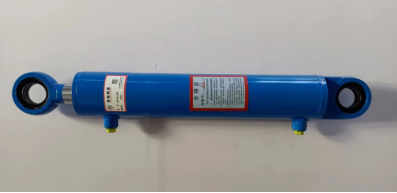Oct . 21, 2024 09:40 Back to list
Hydraulic Power Pack Manufacturing Solutions for Efficient Industrial Applications
Understanding Hydraulic Power Pack Units and Their Manufacturing Process
A hydraulic power pack unit is a crucial component in various industrial applications, serving as a source of hydraulic power for machinery and equipment. These units convert electrical energy into hydraulic energy, facilitating the movement and operation of hydraulic systems. The design, production, and functionality of hydraulic power pack units are essential to numerous sectors including construction, manufacturing, and oil and gas.
The Structure of Hydraulic Power Pack Units
At its core, a hydraulic power pack unit encompasses several key components a hydraulic pump, a motor, a reservoir, valves, filters, and control systems. The hydraulic pump is the heart of the unit, converting mechanical energy from the motor into hydraulic energy. The motor, typically electric, drives the pump at varying speeds depending on the required application.
The reservoir holds the hydraulic fluid, which is essential for transmitting power through the system. A well-designed reservoir allows for efficient fluid circulation and aids in cooling the fluid, prolonging system life. Valves function to control the flow and pressure of the hydraulic fluid, ensuring safe and effective operation. Filters are crucial for maintaining fluid cleanliness, preventing contamination that could damage the entire system.
The Manufacturing Process
The manufacturing of hydraulic power pack units involves several stages, ensuring that each unit meets stringent quality and performance standards. The process begins with material selection, where high-quality metals and components are chosen for durability and strength.
Once materials are sourced, the next step involves precision machining. This entails cutting, shaping, and finishing the various components such as the pump housing, reservoir, and mounting brackets. Computer Numerical Control (CNC) machines are often employed to achieve high levels of precision, ensuring that all parts fit together seamlessly.
hydraulic power pack unit factory

After machining, components undergo assembly. Skilled technicians meticulously fit the pump, motor, and reservoir, ensuring proper alignment and secure connections. This is a critical stage, as any misalignment can lead to system failures or decreased efficiency. During assembly, technicians also install valves, filters, and hoses, integrating the control systems necessary for operation.
Testing and Quality Control
Before a hydraulic power pack unit can be deemed ready for the market, it undergoes rigorous testing. This includes pressure testing, where the assembled unit is subjected to various pressure levels to ensure it can withstand operational demands without leaking or failing. Performance tests assess flow rates and power output, confirming that the unit operates within specified parameters.
Quality control is an ongoing aspect of the manufacturing process. Each unit is inspected for defects, and adherence to safety and efficiency standards is verified. Compliance with international standards such as ISO or ANSI is crucial, especially in industries where safety is of utmost importance.
Applications of Hydraulic Power Pack Units
Hydraulic power pack units find applications in numerous fields. In the construction industry, they are commonly used to power machinery like excavators and cranes. In manufacturing, they power robotic arms and conveyor systems, enhancing production efficiency. Additionally, sectors like the oil and gas industry rely on hydraulic power packs for equipment such as drilling rigs and offshore platforms, where reliability and performance are vital.
Conclusion
In summary, hydraulic power pack units are integral to modern industrial operations, providing the necessary power for a variety of applications. The meticulous manufacturing process—from material selection and machining to assembly and testing—ensures that these units not only meet the demands of high-performance settings but also adhere to strict safety and quality standards. As industries continue to evolve, the role of hydraulic power pack units will undoubtedly expand, driving innovation and efficiency across diverse fields. Investing in high-quality hydraulic power packs is essential for businesses aiming to enhance productivity and maintain competitive advantage in their respective markets.
-
Fork Lift Power Units - Hebei Shenghan | Efficiency, Reliability
NewsJul.13,2025
-
1.5-Ton Turbocharged Cylinder-Hebei Shenghan|Hydraulic Solution,Energy Efficiency
NewsJul.13,2025
-
Auto Hoist Power Units-Hebei Shenghan|Efficiency&Industrial Lifting
NewsJul.13,2025
-
Double Acting Power Units-Hebei Shenghan|Hydraulic Solutions,Industrial Efficiency
NewsJul.13,2025
-
1.5 Ton Lifting Cylinder 70/82-40-290-535 - High-Performance Hydraulic Solution | Hebei Shenghan
NewsJul.13,2025
-
Fork Lift Power Units - Hebei Shenghan | Efficiency&Reliability
NewsJul.13,2025
